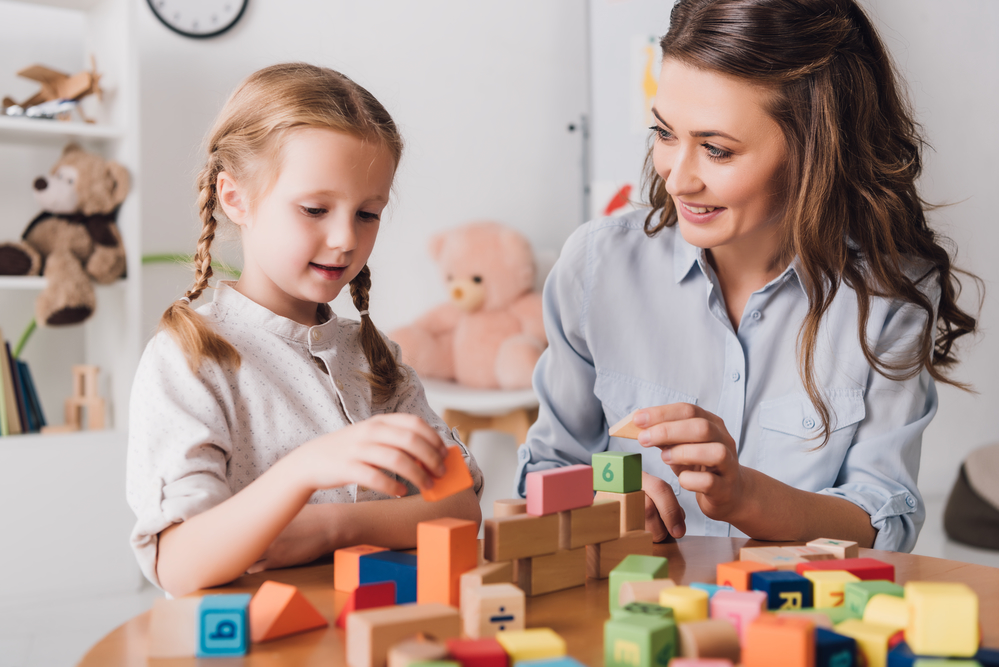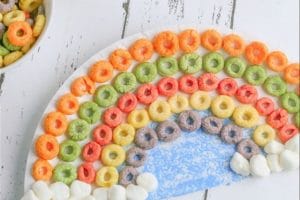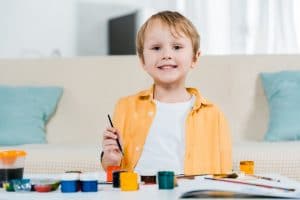Expert tips by Jan Jones (Early Childhood Educator)
Decades of research have documented that play has a crucial role in the optimal growth, learning and development of children from infancy through adolescence.
 How does play help my child to develop?
How does play help my child to develop?
Children learn many things about themselves, others and the world through play. They learn concepts, relationships, cause and effect, sizes, colours, textures, feelings, sensations, sounds, symbols, and language among other things. Play is vital to improving children’s self-esteem/confidence and helps children to develop in the main areas of functioning by:
Social skills and emotional development
Play serves children as a bridge to social situations and gives them an opportunity to learn the rules for getting along with others. Through play, children learn social concepts such as sharing, turn taking, conflict resolution, conversational skills, initiating friendships, co-operation, etc.
Play also provides children with experience relating to emotions and self-regulation. That is, children learn through play what basic feelings mean (e.g. happy, sad, angry) and how different feelings can be managed appropriately.
Communication/Language
Children can often learn language via the various play environments to which they are exposed. In particular, language associated with what the child is playing with is modelled by others and then further developed by the child (ie. talking about their actions and intentions).
Play also offers the opportunity to communicate with others.
Motor skills/Physical development
Because play often involves physical activity, it is closely related to the development and refinement of children’s gross and fine motor skills and their body awareness. As children vigorously and joyfully use their bodies in physical exercise, they simultaneously refine and develop skills that enable them to feel confident, secure and self-assured.
What types of play are there?
Children progress through various stages of play – each requiring more complex skills and understanding.
Exploratory play
This is when the child engages in activities that stimulate their senses and develop motor skills. They actively explore objects and their own capabilities through simple non-goal-oriented and repetitious play. For example, a child may ‘mouth’ objects, bang toys, intentionally drop objects from their high chair, scribble with crayons, pour water back and forth, feel sand or ring a bell.
Functional play
This is when the child learns to use objects intentionally (or functionally). The child begins to realise the concept of “cause and effect” i.e. they are able to understand that their actions determine predictable consequences e.g. “if I push this car, then it will move” or “if I open the door, then I can get the toy inside”. Thus, instead of banging/mouthing toys, they are now used in more purposeful ways e.g. pushing the car, brushing hair. Children also begin to imitate behaviours with objects.
Constructive play
This is when the child begins to use objects constructively e.g. taking apart an item and putting it back together (puzzles, colouring, building a block tower)
Pretend/symbolic play
This is when the child learns to pretend and act out things they know or have imagined. In order to pretend, children must develop the ability to represent experience symbolically. For instance, a child must cross two blocks to make an aeroplane. In this complex type of play, children carry out action plans, take on roles and transform objects as they express their ideas and feelings about the social world.
As children progress through these various stages of play, they also learn to interact with peers in more complex ways – this is termed ‘social play’.
Social play is comprised of three main stages:
Solitary play
The child plays alone and he/she may develop interests in various individual areas (e.g. drawing, riding a bike)
Parallel play
The child plays alongside another child without interacting or talking to them. They are sometimes within speaking distance of others but make little or no effort to communicate. Two children playing with similar toys may pursue unrelated activities. They concentrate on their own needs, reflecting egocentric behaviour, and have no concept of rules e.g. when two children are sitting and drawing next to each other.
Interactive/co-operative play
The child plays with other children, involving sharing and talking to each other. Young pre-schoolers may talk about common interests and borrow/lend toys. Older pre-schoolers may play together and help each other in an activity that produces some material/product or pursues some goal e.g. when two children are playing house together and asking each other for things.
How can I best play with my child?
- Get down and dirty! Children often like it when you join them in their play. You can join in by getting down to their level and doing what they are doing e.g. sit in the sandpit and make a castle; collect some food and pretend to be a shopkeeper and sell things to your child; take turns to build a tower with blocks.
- Show your child that you are enjoying playing with them and try not to take over their play. After a while of copying what your child id doing, you could show them a new way of doing the activity or playing with the toy thus extending their play.
- Model appropriate behaviour – children learn through imitation, so demonstrate appropriate play skills that they can copy e.g. model how to play with specific toys.
- Facilitate/teach appropriate interactions – without knowing, your child will learn how to interact by playing out situations with you e.g. you can teach empathy when teddy falls over and needs his friend dolly to help him.
- HAVE FUN!!!
Play ideas for home
- Play dough
- Pretend play e.g. tea sets, doctor kits, house play
- Sensory play e.g. playing with toys in sand, water, mud
- Ball/physical games e.g. climbing, running, riding
- Dress ups
- Musical instruments
- Animals and vehicles
- Drawing, painting, craft
- Board games
- Books
- Soft toys, dolls, teddies
- Recreational play e.g. water toys, kites, sports

 How does play help my child to develop?
How does play help my child to develop?











